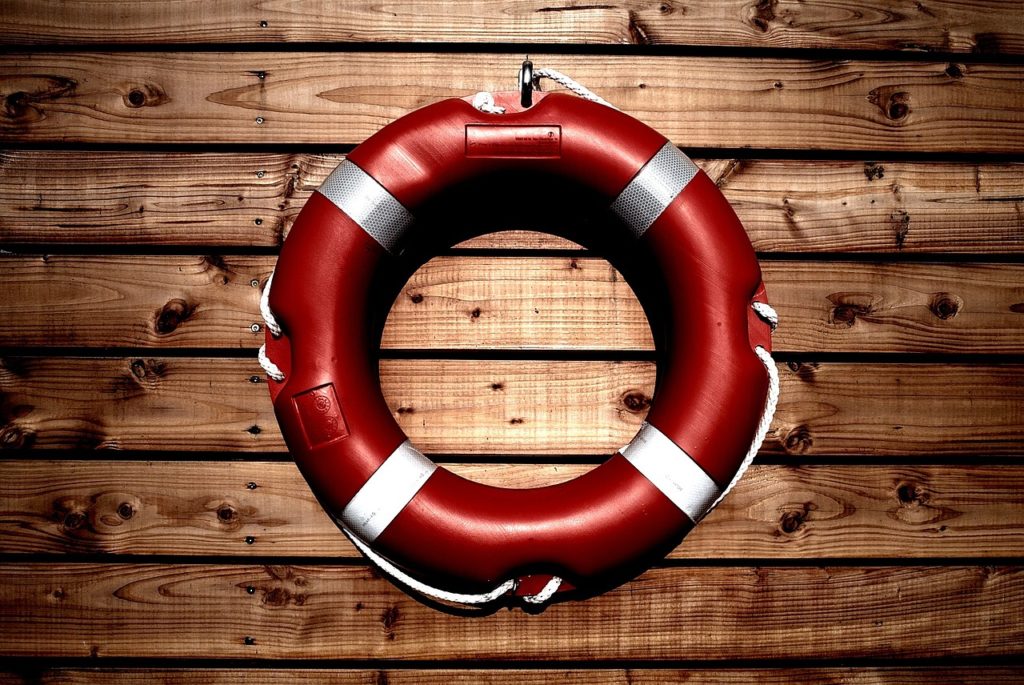SOS – be prepared for an emergency

Even the best trip on the water can suddenly be overshadowed by an emergency. Due to the excitement, the right behavior is not so easy in most cases. So that you are as well prepared as possible for unpleasant scenarios, we will give you a few useful tips in this article that will certainly help you in an emergency.
Basically, possible scenarios can be divided into several categories. These include medical emergencies, person(s) overboard, a fire on board or even unwanted water ingress.
Medical emergencies can be very diverse. Whether on the water or on land – a regular refresher course in first aid never hurts anyone. A plaster, a bandage or reassuring encouragement is often enough as a first action in the event of an accident. The more confident you are with the materials in your first aid kit, the better you will be able to help in an emergency. Of course, the material must always be complete and the expiration date must be checked regularly. There are also special providers who specialize in survival at sea. These courses provide more detailed information on the special features to be observed on the water.
In the event of a “person overboard” situation, the following points must be observed:
It is essential that visual contact with the person overboard is not lost. The ship must be stopped and turned around. Rescue equipment in the form of a throwing line or a lifebuoy must be thrown into the water as quickly as possible. Use the POB button (formerly MOB) on your GPS device and make an emergency call.
In the event of a fire, all crew members must be warned of the danger immediately. If possible, the fire should be extinguished as soon as it starts. All persons on board must assemble on deck and an emergency call must be made immediately. As in a medical emergency, it is important to be familiar with the rescue equipment. In this case, these are primarily the fire extinguishers. Appropriate training and regular refresher courses are definitely advisable. Anyone who is familiar with the use of such an extinguisher in an emergency will usually remain more relaxed and react appropriately. Regular maintenance of the extinguishers is also essential.
In the event of a fire, the element of water can be an important helper in averting the danger. However, in the event of uncontrolled water ingress, water is a major hazard and every minute counts. Depending on the size of the crew, it may make sense to divide tasks among each other. This could include, for example, searching for leaks, starting the engine and bilge pump and making an emergency call.
It therefore makes sense to always have a clean bilge and to be aware of all outboard outlets. For your own sake, regularly check valves, hose clamps and all connections that could lead to unwanted water ingress. The inventory on board should therefore always include suitable leak plugs, sealant, an alarm and, for example, underwater epoxy resin.
Statistically speaking, such incidents on the water are rather rare, but you should always be prepared for them for your own safety. It therefore only hurts to go through such cases together in theory so that everyone knows what to do in an emergency. In an emergency, there is usually hardly any time to think.
Your NavShip team



0 Comments